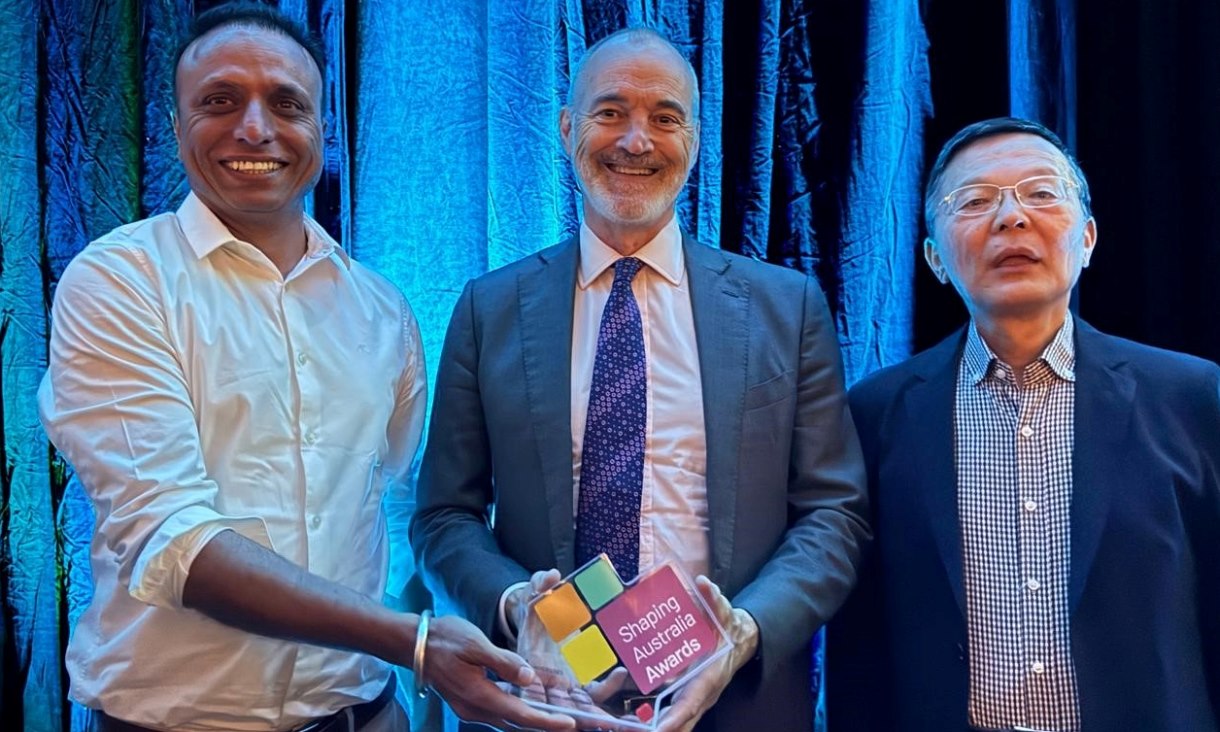New research brings cultural and climatic perspectives into Plus Energy Building design
RMIT researchers have investigated everyday household practices to inform PEB design and enhance the use of energy-saving technologies in the home.
Academy students taste a little BITS of Melbourne
RMIT recently bid a temporary farewell to the newest cohort of BITS-RMIT Higher Education Academy students, who visited Melbourne for a whirlwind nine-day immersion tour.
Tiny device promises new tech with a human touch
Engineers at RMIT University have invented a small ‘neuromorphic’ device that detects hand movement, stores memories and processes information like a human brain, without the need for an external computer.
Smart spongy device captures water from thin air
Engineers from Australia and China have invented a sponge-like device that captures water from thin air and then releases it in a cup using the sun’s energy, even in low humidity where other technologies such as fog harvesting and radiative cooling have struggled.
RMIT strengthens relations in ASEAN region with Digital Readiness Program
Last week, The College of Business and Law in collaboration with the College of Vocational Education, welcomed recipients of the Australia Awards Improving Digital Readiness and Resilience of the Technical and Vocational Education Training (TVET) short course program.
Aussie tech helps make bio-oils for greener industrial applications
Australian technology developed at RMIT University could enable more sustainable and cheaper production of bio-oils to replace petroleum-based products in electronic, construction and automotive applications.
More women in tech could deliver a $6.5bn benefit to Australian businesses
A new report by RMIT Online and Deloitte Access Economics has found that increasing women’s participation in technology careers could represent a $6.5 billion opportunity for Australian businesses.
RMIT spin-off launches new manufacturing hub in the heart of Melbourne
The company producing an early fault detection (EFD) system that helps prevent bushfires and blackouts globally has established a new manufacturing hub in Richmond.
Water movement on surfaces makes more electric charge than expected
Researchers from RMIT University and the University of Melbourne have discovered that water generates an electrical charge up to 10 times greater than previously understood when it moves across a surface.
Sea sponge inspires super strong compressible material
Inspired by the humble deep-sea sponge, RMIT University engineers have developed a new material with remarkable compressive strength and stiffness that could improve architectural and product designs.
Coffee concrete wins national research award
RMIT University’s coffee concrete innovators have won an award at Universities Australia’s Shaping Australia Awards in the Problem Solver category, after tallying the most votes from the public.














